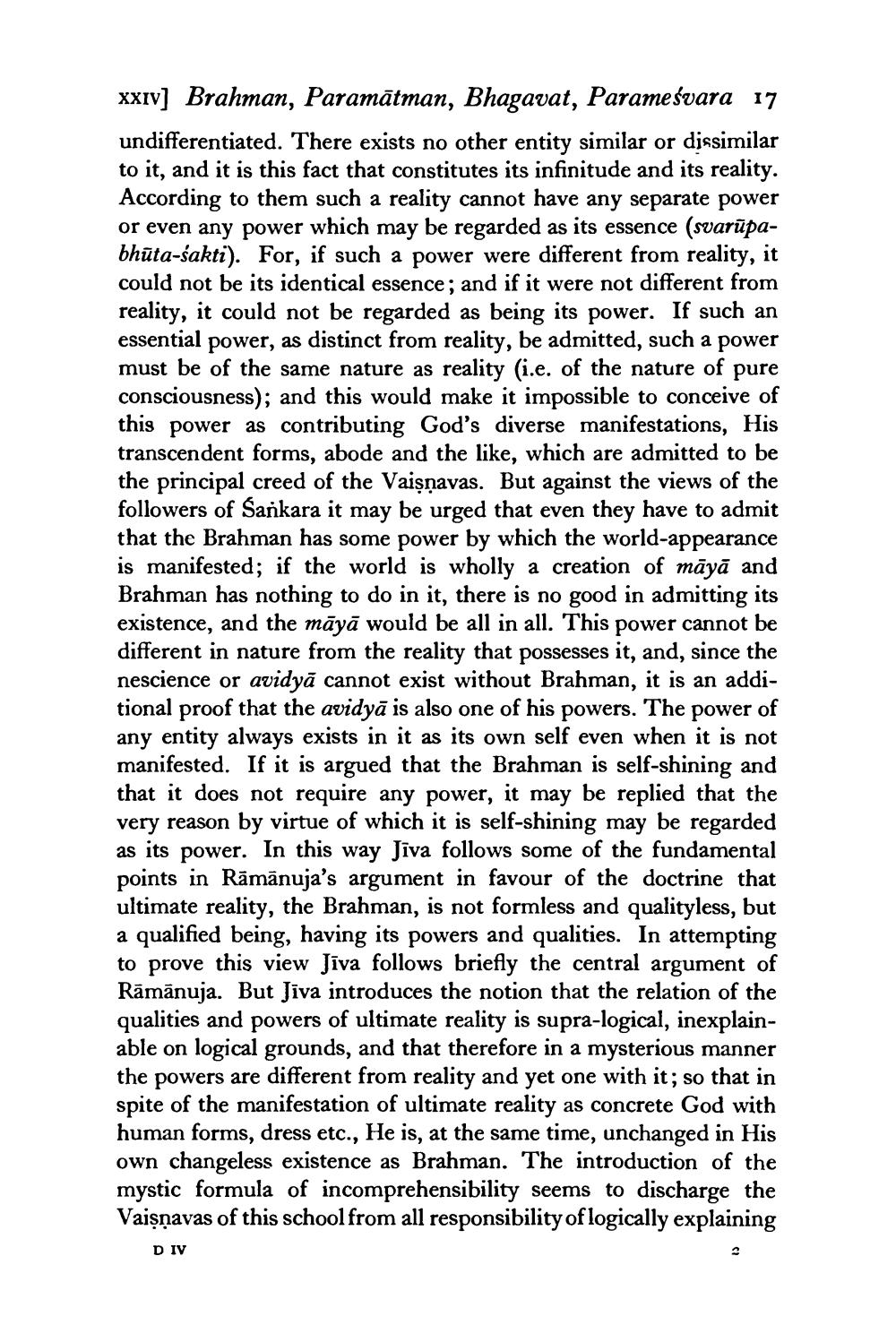________________
XXIV] Brahman, Paramātman, Bhagavat, Parameśvara 17 undifferentiated. There exists no other entity similar or dissimilar to it, and it is this fact that constitutes its infinitude and its reality. According to them such a reality cannot have any separate power or even any power which may be regarded as its essence (svarūpabhūta-sakti). For, if such a power were different from reality, it could not be its identical essence; and if it were not different from reality, it could not be regarded as being its power. If such an essential power, as distinct from reality, be admitted, such a power must be of the same nature as reality (.e. of the nature of pure consciousness); and this would make it impossible to conceive of this power as contributing God's diverse manifestations, His transcendent forms, abode and the like, which are admitted to be the principal creed of the Vaisnavas. But against the views of the followers of Sankara it may be urged that even they have to admit that the Brahman has some power by which the world-appearance is manifested; if the world is wholly a creation of māyā and Brahman has nothing to do in it, there is no good in admitting its existence, and the māyā would be all in all. This power cannot be different in nature from the reality that possesses it, and, since the nescience or avidyā cannot exist without Brahman, it is an additional proof that the avidyā is also one of his powers. The power of any entity always exists in it as its own self even when it is not manifested. If it is argued that the Brahman is self-shining and that it does not require any power, it may be replied that the very reason by virtue of which it is self-shining may be regarded as its power. In this way Jīva follows some of the fundamental points in Rāmānuja's argument in favour of the doctrine that ultimate reality, the Brahman, is not formless and qualityless, but a qualified being, having its powers and qualities. In attempting to prove this view Jīva follows briefly the central argument of Rāmānuja. But Jiva introduces the notion that the relation of the qualities and powers of ultimate reality is supra-logical, inexplainable on logical grounds, and that therefore in a mysterious manner the powers are different from reality and yet one with it; so that in spite of the manifestation of ultimate reality as concrete God with human forms, dress etc., He is, at the same time, unchanged in His own changeless existence as Brahman. The introduction of the mystic formula of incomprehensibility seems to discharge the Vaisnavas of this school from all responsibility of logically explaining
DIV




